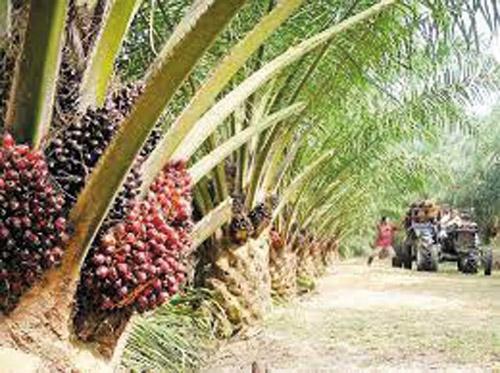25 Sep 2023 - {{hitsCtrl.values.hits}}
Sri Lanka should look at completely reversing the ban on oil palm cultivation, an effort that, if rolled out properly, will ensure the flourishing of grassroots economies, the Planters’ Association of Ceylon (PA) said.
will ensure the flourishing of grassroots economies, the Planters’ Association of Ceylon (PA) said.
Planters’ Association Chairman Senaka Alawattegama stressed the need for oil palm cultivation to be “sustainably” expanded for plantation companies and smallholders alike.
“We need only to look at Malaysia, Indonesia, and the small but vibrant local communities in Sri Lanka that have benefited from the transformative economic benefits of this crop.
“In Sri Lanka, RPC employees in the oil palm sector currently receive an average income over Rs. 100,000 per month. It is a tragic waste that we have such a lucrative option available to us in a time of such profound economic hardship and we continue to deny more Sri Lankans from having access to similar opportunities,” Alawattegama told the Planters’ Association AGM on last Friday.
Currently, Indonesia produces more than 40 million MT of palm oil per year and generates 4.5 percent of its GDP, and provides employment to 3 million people. Similarly, Malaysia’s palm oil industry produces 18.5 million MT which contributes about 2.5 percent to its GDP.
The jobs created by these crops are found in remote rural areas where work is hard to find. The sector also provides sustainable livelihoods for both farmers and producers and has lifted millions out of abject poverty, and into a thriving middle class.
By taking into account regional success stories, Alawattegama asserted Sri Lanka must take steps to expand oil palm cultivation without jeopardising biodiversity, an effort that can be accomplished by simply phasing out unproductive and unprofitable rubber.
“We reiterate that with a proper framework, this can be done. While the President has already provided his support for such an approach, we continue to call on all other levels of government to extend support. These obstacles must be cleared with immediate effect.,” he said.
Furthermore, the PA pointed out that diversification of crops is not just about expanding revenue streams, it is a risk mitigation strategy. By cultivating a variety of crops, Sri Lanka can better withstand economic uncertainties.
However, successful diversification requires government support, including assistance in cultivating financially viable crops and flexible land-use policies.
“This is our best path to building a more resilient sustainable and economically vibrant plantation sector that benefits all stakeholders,” said Alawattegama.
At present, Sri Lanka consumes 220,00 metric tons of palm oil of which only 12 percent is produced locally. In 2023, the import bill associated with palm oil was approximately US$ 300 million. The PA pointed out that this bill could be reduced with local production.
We reiterate that if Sri Lanka is to progress, we must be able to formulate policy based on facts and data, not slogans and rhetoric.
“It is essential that we separate facts from myths. The Planters’ Association has consistently provided evidence/on how oil palm can be grown ethically and sustainably without harming the environment,” Alawattegama stressed.
30 Oct 2024 11 minute ago
30 Oct 2024 34 minute ago
30 Oct 2024 1 hours ago
30 Oct 2024 5 hours ago
29 Oct 2024 29 Oct 2024